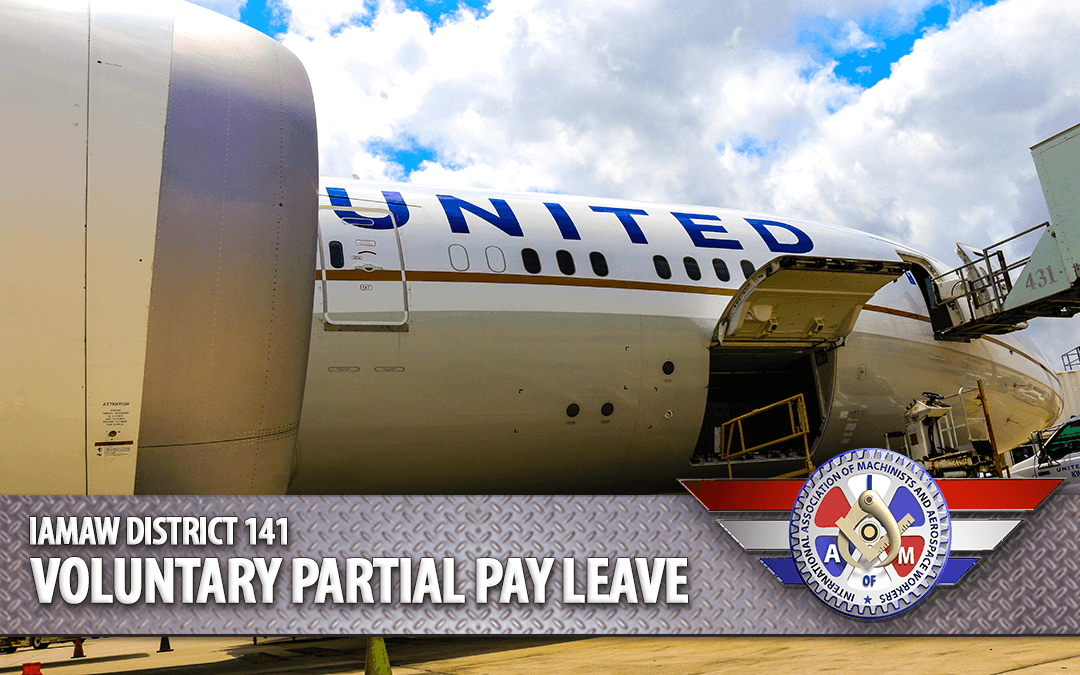
by Eric Price | Jul 23, 2020 | Airlines, COVID, Featured, Front Page, MNPL, Row 2, Safety, Uncategorized, United
July 24, 2020 To IAM-represented workers at United Airlines: IAM District 141 and United Airlines have come to an agreement for a new 12-month Voluntary Partial Pay Leave (VPPL) program. The VPPL will provide 25 percent pay continuation, medical and dental coverage at...
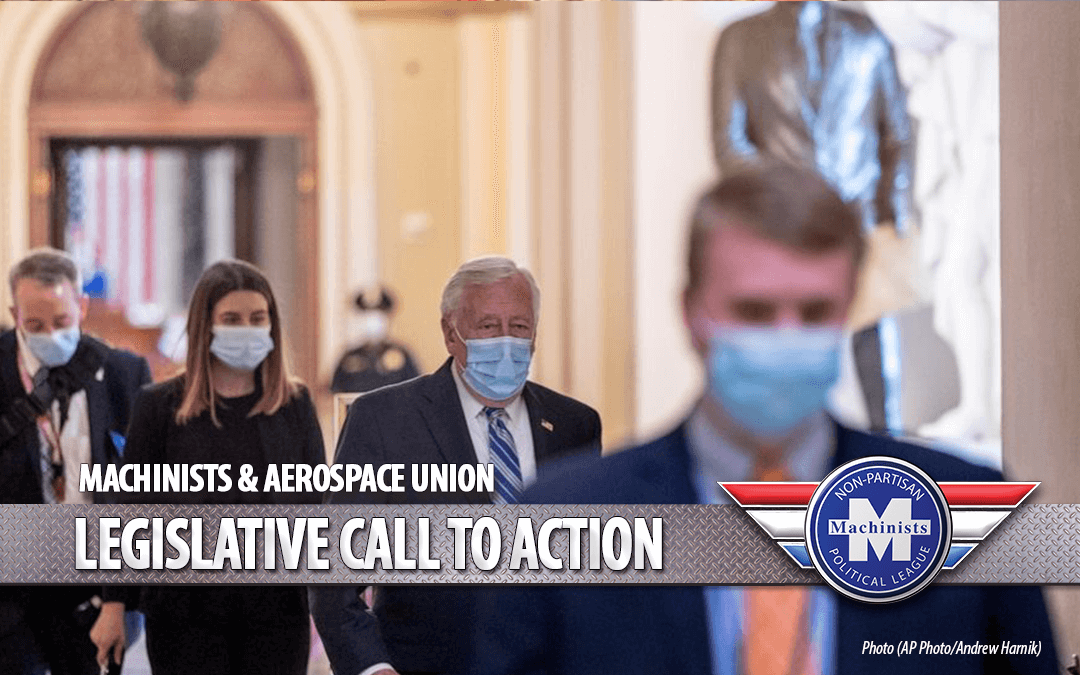
by Eric Price | Jul 22, 2020 | Airlines, COVID, Front Page, MNPL, Row 2
Ask Congressional Leadership to Save Hundreds of Thousands of Airline Jobs In March, as U.S. COVID-19 cases began rising exponentially, Congress rose to the occasion by enacting the CARES Act to provide assistance to tens of millions of Americans who found their...
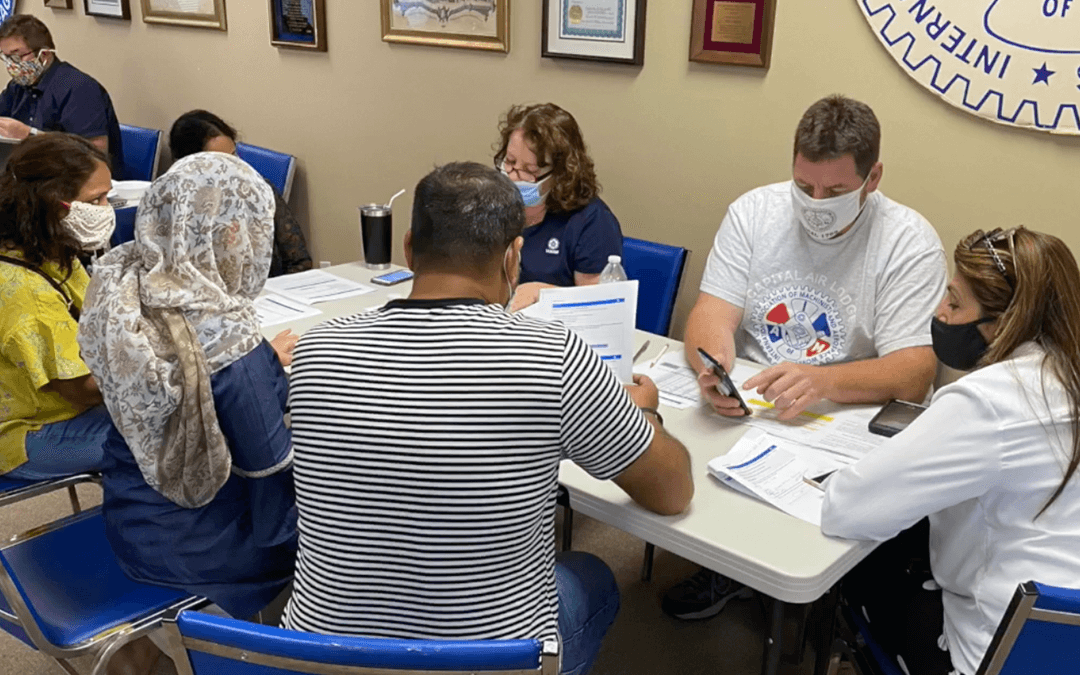
by Eric Price | Jul 21, 2020 | Airlines, Community Service Page, COVID, MNPL, Organizing, Row 2, Uncategorized, Video
Local Lodge 1759 (DC Area) Holds Town Halls to Discuss Furloughs Capitol Air Lodge 1759 in Herndon, Virginia calls daily membership Q&A Sessions, 8-hours a day, for the next two weeks. IAMAW Local 1759 President, Bill Huston discusses the extraordinary efforts...
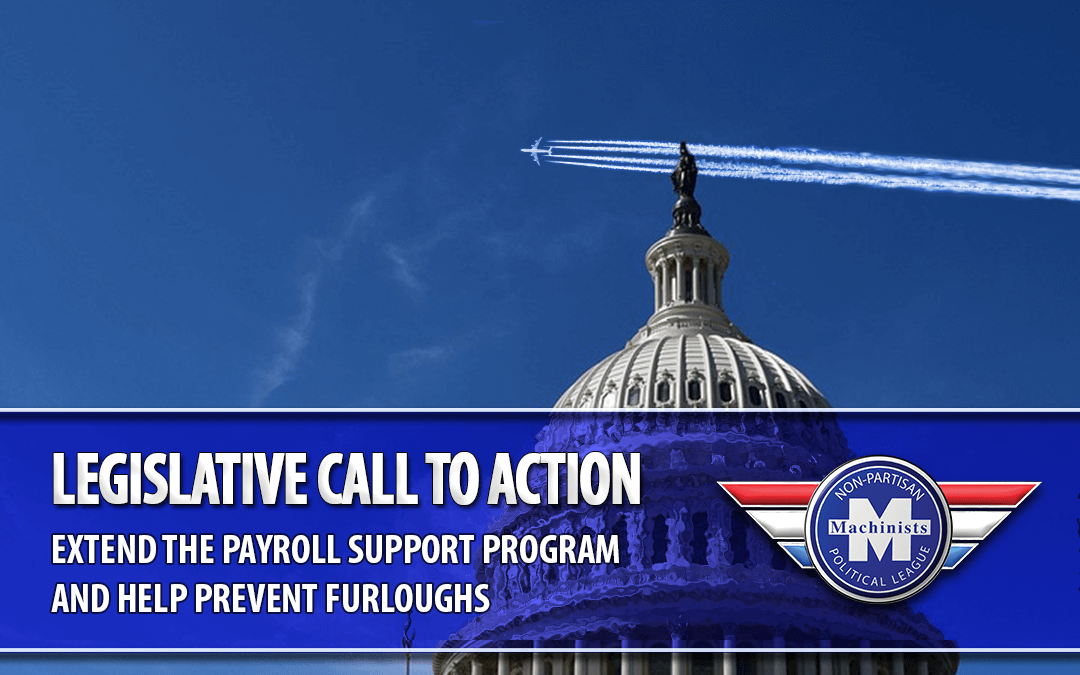
by Eric Price | Jul 21, 2020 | Airlines, COVID, Featured News, Front Page, MNPL, Row 2, Uncategorized
Last week, a group of lawmakers in the House Transportation Committee began circulating a letter asking members of Congress to publicly support a plan that would save hundreds of thousands of airline jobs this fall. The letter calls for an extension of the Payroll...
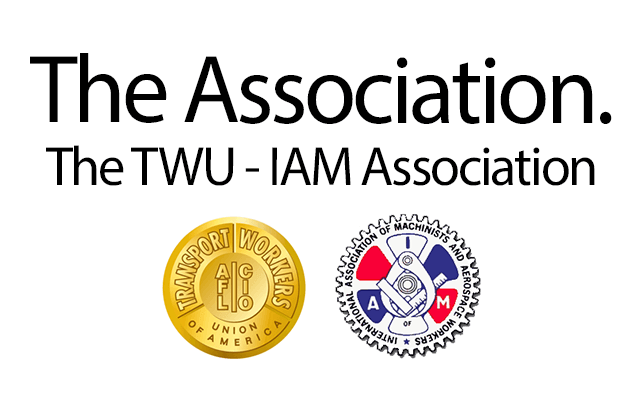
by Eric Price | Jul 17, 2020 | American, COVID, EAP, Row 2, Uncategorized
Sisters and Brothers, This year has been an emotional rollercoaster and stressful year for all of us. We have experienced periods of high stress coupled with periods of good news. Contentious contract talks, ratified contract, COVID 19, CARES Act passes, pandemic...

by Eric Price | Jul 16, 2020 | American, COVID, Front Page, The Association, Uncategorized
To: TWU/IAM Membership From: TWU/IAM Staff Date: 7.16.2020 RE: WARN Letter This is an informational note to address the fact that American Airlines has issued WARN letters to members of the Association. Let’s start by talking about what a WARN letter is. The...







